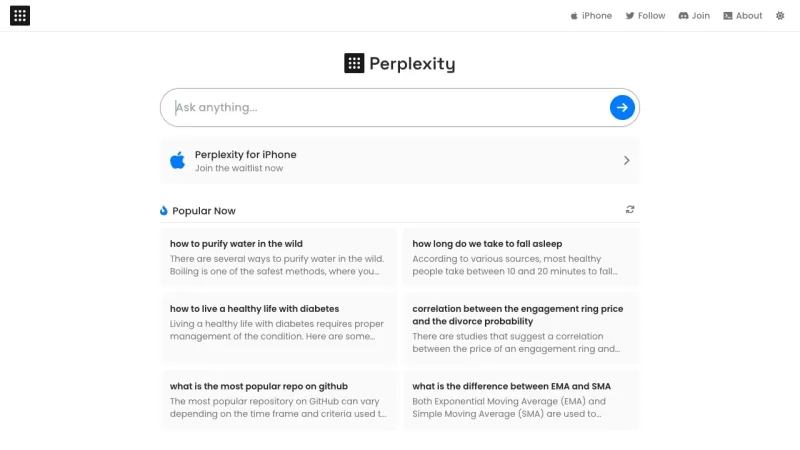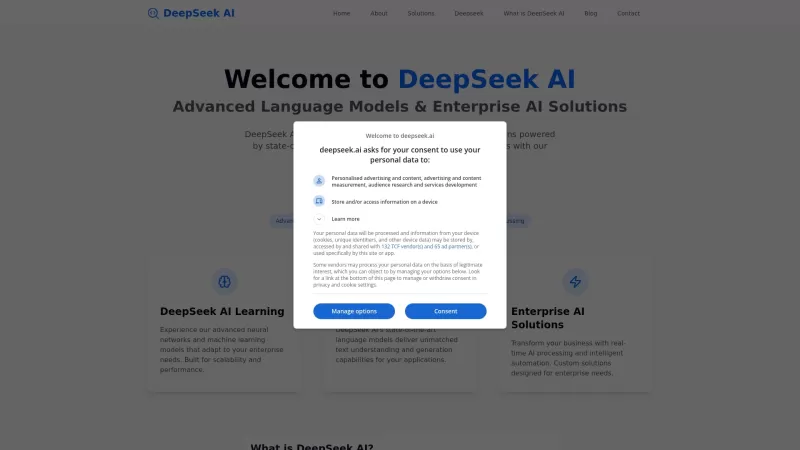Safeguard Your Information: A Full Guide to Digital Privacy

 May 1, 2025
May 1, 2025

 JackMitchell
JackMitchell

 0
0
In today's hyper-connected world, our digital footprint is constantly expanding. Every click, swipe, and search we make generates data that's collected, analyzed, and often monetized. Understanding digital privacy, its implications, and how to protect ourselves is more crucial than ever. This article is your comprehensive guide to navigating the complexities of data privacy, empowering you to take control of your digital life and understand the role of ethical AI. Let's delve into how to secure your data, know your rights, and demand transparency from the companies you interact with online.
Key Points
- Understanding the value of your data in the digital age is crucial for privacy.
- Every online action leaves a digital trail, creating data points about you.
- Companies use your data to target ads, personalize experiences, and predict behaviors.
- Data privacy regulations such as GDPR, CCPA, and NDPR exist to protect your rights.
- Transparency from companies about data collection and usage is essential.
- AI presents a double-edged sword, capable of enhancing privacy yet also enabling detailed profiling.
- Proactive steps such as using strong passwords, adjusting privacy settings, and avoiding phishing scams are key to safeguarding your digital life.
Understanding the Digital Landscape and Your Data
The Value of Your Data
In the modern digital era, data is often dubbed 'the new gold'.  This comparison highlights its immense value to businesses and organizations worldwide. The data you generate through your online activities—browsing, searching, shopping, social networking—is meticulously collected and analyzed to uncover insights into your preferences, habits, and potential future actions.
This comparison highlights its immense value to businesses and organizations worldwide. The data you generate through your online activities—browsing, searching, shopping, social networking—is meticulously collected and analyzed to uncover insights into your preferences, habits, and potential future actions.
This information is then used for various purposes:
- Targeted Advertising: Companies use your data to deliver ads tailored to your specific interests, making them more effective.
- Personalize User Experiences: Customizing website and app interfaces to align with your observed preferences.
- Predict Future Behavior: Anticipating your needs and actions to optimize marketing strategies and product development.
The sheer volume and potential uses of this data make it a valuable commodity. Understanding its value is the first step toward safeguarding your digital privacy. Remember, your data is more than just your name and address—it's a reflection of who you are as a person.
Your Digital Trail
Every click, swipe, and tap online leaves a digital footprint.  Like walking through a forest, your online activity leaves a trail of 'data points' that can be tracked and pieced together to create a profile of you. This includes:
Like walking through a forest, your online activity leaves a trail of 'data points' that can be tracked and pieced together to create a profile of you. This includes:
- Search Queries: What you search for online reveals your interests, questions, and concerns.
- Purchase History: What you buy paints a picture of your needs, desires, and spending habits.
- Social Media Interactions: Who you connect with and what you share discloses your relationships, beliefs, and social circles.
This trail is not just a collection of random bits of information; it's a narrative of your digital life that can be surprisingly revealing. Many companies can uncover more data points than you might expect. Taking ownership of your digital trail begins with awareness and careful consideration of your online actions. The more data you leak, the more vulnerable you are to data breaches.
Data Collection: How Companies Use Your Information
Companies are in the business of collecting data for a variety of purposes, all geared toward enhancing their business strategies and increasing revenue. Here are some key ways your data is utilized:
- Targeted Advertising: By analyzing your browsing history and purchase patterns, companies can display ads that are highly relevant to your interests, increasing the likelihood of a purchase. This leads to an increase in purchases and revenue for the websites that use targeted advertising.
- Personalization: Data enables companies to customize your user experience on their websites and apps, making them more engaging and user-friendly. You're more likely to spend time with a website that understands you and caters to your taste.
- Predictive Analytics: Analyzing past behavior allows companies to forecast future trends and anticipate your needs, enabling them to stay ahead of the curve and offer products and services at just the right moment. They can anticipate what you'll buy so they can make a sale to you at the perfect moment.
The collection of data is not limited to a single company; it's a widespread practice across numerous organizations. This interconnected web of data collection amplifies the importance of understanding how your data is being used and taking steps to protect your privacy.
Data Collection Statistics
Category Statistics Data Collected What you search, what you buy, who you talk to Purpose Targeted advertising, personalization, predictive analytics Collecting Parties Many companies, not just one Value Considered the “new gold” due to its immense value to businesses
Data Privacy Laws and Regulations
Knowing Your Rights: Key Data Privacy Laws
 Fortunately, there are laws in place to protect you. Recognizing the growing need for data privacy, various regions have enacted regulations designed to give you more control over your personal information. It's important to know these laws because knowledge is power, and you want to be in control of your data.
Fortunately, there are laws in place to protect you. Recognizing the growing need for data privacy, various regions have enacted regulations designed to give you more control over your personal information. It's important to know these laws because knowledge is power, and you want to be in control of your data.
Here are some key pieces of legislation:
- GDPR (General Data Protection Regulation): In Europe, GDPR sets strict guidelines for data collection, storage, and usage. It grants individuals the right to access their data, correct inaccuracies, and even request deletion ('the right to be forgotten'). You must abide by GDPR regulations if you have customer data from Europe.
- CCPA (California Consumer Privacy Act): In California, the CCPA provides similar rights to consumers, including the right to know what data is being collected, the right to opt-out of the sale of personal information, and the right to non-discrimination for exercising their privacy rights. This California law is important to know as more and more businesses are opening headquarters or satellite offices in California.
- NDPR (Nigeria Data Protection Regulation): The NDPR aims to protect the privacy of individuals in Nigeria and requires organizations to implement appropriate data protection measures. You are required to follow NDPR regulation if you have business in Nigeria.
These regulations empower you to demand transparency from companies and hold them accountable for how they handle your data. Understanding these laws is crucial for asserting your rights and ensuring your digital privacy is protected.
Transparency is Key
 Transparency is the foundation of ethical data handling. Companies need to be upfront about what data they collect, how they use it, and with whom they share it. This includes providing clear and accessible privacy policies that are easy to understand. There's nothing to fear if you're using the data properly.
Transparency is the foundation of ethical data handling. Companies need to be upfront about what data they collect, how they use it, and with whom they share it. This includes providing clear and accessible privacy policies that are easy to understand. There's nothing to fear if you're using the data properly.
No more burying privacy policies in pages of legal jargon that nobody understands. Customers appreciate being respected, and they'll often give you more leeway with their data if you're honest and upfront with them.
We need clear, concise language that everyone can understand. This openness fosters trust and enables individuals to make informed decisions about their data. If you want to build loyalty, trust is more important than profit!
Practical Tips for Protecting Your Data
Be Mindful of What You Share Online
 Think before you post, and adjust your privacy settings on social media. With just a few simple steps, you can increase your digital privacy and ensure your data doesn't get into the wrong hands.
Think before you post, and adjust your privacy settings on social media. With just a few simple steps, you can increase your digital privacy and ensure your data doesn't get into the wrong hands.
Use Strong Passwords and Enable Two-Factor Authentication
Use strong passwords and enable two-factor authentication whenever possible to make it much harder for hackers to access your accounts.
Be Wary of Phishing Scams
Be wary of phishing scams. Don't click on links from unknown senders, and never give out your personal information over email.
Read Privacy Policies and Stay Informed
 Read the privacy policies of the websites and apps you use, and don't be afraid to ask questions. If there's anything you don't agree with in their privacy policies, don't be afraid to discontinue using their services.
Read the privacy policies of the websites and apps you use, and don't be afraid to ask questions. If there's anything you don't agree with in their privacy policies, don't be afraid to discontinue using their services.
Data Privacy: Benefits and Challenges
Pros
- Protects Personal Information: Safeguards against misuse and unauthorized access.
- Empowers Control: Gives individuals greater control over their digital footprint.
- Promotes Ethical Behavior: Encourages companies to handle data responsibly and ethically.
Cons
- Complexity: Navigating data privacy laws and regulations can be complex and challenging.
- Enforcement Challenges: Enforcing data privacy regulations can be difficult, especially in a globalized digital landscape.
- Potential for Bias: AI algorithms can perpetuate biases if trained on biased datasets.
Frequently Asked Questions (FAQ)
What is data privacy?
Data privacy refers to the right of individuals to control how their personal information is collected, used, and shared. It's about ensuring that your data is handled responsibly and ethically.
Why is data privacy important?
Data privacy is important because it safeguards your personal information from misuse, identity theft, and unauthorized access. It empowers you to control your digital footprint and protect your rights.
What are some basic steps I can take to protect my data?
Some basic steps include using strong passwords, enabling two-factor authentication, being mindful of what you share online, and staying informed about data privacy laws and regulations.
Related Questions
What are the potential dangers of biased AI?
AI algorithms are trained on massive datasets, and if those datasets are biased, the AI will be biased too. This can lead to discriminatory hiring practices, unfair loan approvals, and even wrongful arrests. It's essential to ensure that AI is developed and used ethically and that diverse voices are involved in the development process.
Related article
 Percy Jackson Adaptations: Movies vs. Disney+ Series
The Percy Jackson PhenomenonRick Riordan's *Percy Jackson* series has truly captivated a global audience, blending the ancient allure of Greek mythology with the thrill of modern-day adventure. The books, which follow the journey of Percy Jackson, a demigod son of Poseidon, have not only ignited a r
Percy Jackson Adaptations: Movies vs. Disney+ Series
The Percy Jackson PhenomenonRick Riordan's *Percy Jackson* series has truly captivated a global audience, blending the ancient allure of Greek mythology with the thrill of modern-day adventure. The books, which follow the journey of Percy Jackson, a demigod son of Poseidon, have not only ignited a r
 This Tablet Outshines Kindle and iPad in Hours, Now on Sale
The TCL Tab 10 Nxtpaper 5G's display is a game-changer, especially for those of us who enjoy reading on the go. The lack of a backlight and the frosted finish on the screen work wonders in reducing glare and reflections. Not only does this make reading more enjoyable, but it also boosts energy effic
This Tablet Outshines Kindle and iPad in Hours, Now on Sale
The TCL Tab 10 Nxtpaper 5G's display is a game-changer, especially for those of us who enjoy reading on the go. The lack of a backlight and the frosted finish on the screen work wonders in reducing glare and reflections. Not only does this make reading more enjoyable, but it also boosts energy effic
 Discover the Strength of Female Icons in Punk Rock: Unleash Your Inner Rebel
Punk rock, with its roots in defiance and a do-it-yourself spirit, has always been about shaking up the establishment. While it's often linked with male icons, the women of punk have been just as, if not more, revolutionary. They've smashed guitars, belted out fierce vocals, and crafted lyrics that
Comments (0)
0/200
Discover the Strength of Female Icons in Punk Rock: Unleash Your Inner Rebel
Punk rock, with its roots in defiance and a do-it-yourself spirit, has always been about shaking up the establishment. While it's often linked with male icons, the women of punk have been just as, if not more, revolutionary. They've smashed guitars, belted out fierce vocals, and crafted lyrics that
Comments (0)
0/200

 May 1, 2025
May 1, 2025

 JackMitchell
JackMitchell

 0
0
In today's hyper-connected world, our digital footprint is constantly expanding. Every click, swipe, and search we make generates data that's collected, analyzed, and often monetized. Understanding digital privacy, its implications, and how to protect ourselves is more crucial than ever. This article is your comprehensive guide to navigating the complexities of data privacy, empowering you to take control of your digital life and understand the role of ethical AI. Let's delve into how to secure your data, know your rights, and demand transparency from the companies you interact with online.
Key Points
- Understanding the value of your data in the digital age is crucial for privacy.
- Every online action leaves a digital trail, creating data points about you.
- Companies use your data to target ads, personalize experiences, and predict behaviors.
- Data privacy regulations such as GDPR, CCPA, and NDPR exist to protect your rights.
- Transparency from companies about data collection and usage is essential.
- AI presents a double-edged sword, capable of enhancing privacy yet also enabling detailed profiling.
- Proactive steps such as using strong passwords, adjusting privacy settings, and avoiding phishing scams are key to safeguarding your digital life.
Understanding the Digital Landscape and Your Data
The Value of Your Data
In the modern digital era, data is often dubbed 'the new gold'.  This comparison highlights its immense value to businesses and organizations worldwide. The data you generate through your online activities—browsing, searching, shopping, social networking—is meticulously collected and analyzed to uncover insights into your preferences, habits, and potential future actions.
This comparison highlights its immense value to businesses and organizations worldwide. The data you generate through your online activities—browsing, searching, shopping, social networking—is meticulously collected and analyzed to uncover insights into your preferences, habits, and potential future actions.
This information is then used for various purposes:
- Targeted Advertising: Companies use your data to deliver ads tailored to your specific interests, making them more effective.
- Personalize User Experiences: Customizing website and app interfaces to align with your observed preferences.
- Predict Future Behavior: Anticipating your needs and actions to optimize marketing strategies and product development.
The sheer volume and potential uses of this data make it a valuable commodity. Understanding its value is the first step toward safeguarding your digital privacy. Remember, your data is more than just your name and address—it's a reflection of who you are as a person.
Your Digital Trail
Every click, swipe, and tap online leaves a digital footprint.  Like walking through a forest, your online activity leaves a trail of 'data points' that can be tracked and pieced together to create a profile of you. This includes:
Like walking through a forest, your online activity leaves a trail of 'data points' that can be tracked and pieced together to create a profile of you. This includes:
- Search Queries: What you search for online reveals your interests, questions, and concerns.
- Purchase History: What you buy paints a picture of your needs, desires, and spending habits.
- Social Media Interactions: Who you connect with and what you share discloses your relationships, beliefs, and social circles.
This trail is not just a collection of random bits of information; it's a narrative of your digital life that can be surprisingly revealing. Many companies can uncover more data points than you might expect. Taking ownership of your digital trail begins with awareness and careful consideration of your online actions. The more data you leak, the more vulnerable you are to data breaches.
Data Collection: How Companies Use Your Information
Companies are in the business of collecting data for a variety of purposes, all geared toward enhancing their business strategies and increasing revenue. Here are some key ways your data is utilized:
- Targeted Advertising: By analyzing your browsing history and purchase patterns, companies can display ads that are highly relevant to your interests, increasing the likelihood of a purchase. This leads to an increase in purchases and revenue for the websites that use targeted advertising.
- Personalization: Data enables companies to customize your user experience on their websites and apps, making them more engaging and user-friendly. You're more likely to spend time with a website that understands you and caters to your taste.
- Predictive Analytics: Analyzing past behavior allows companies to forecast future trends and anticipate your needs, enabling them to stay ahead of the curve and offer products and services at just the right moment. They can anticipate what you'll buy so they can make a sale to you at the perfect moment.
The collection of data is not limited to a single company; it's a widespread practice across numerous organizations. This interconnected web of data collection amplifies the importance of understanding how your data is being used and taking steps to protect your privacy.
Data Collection Statistics
| Category | Statistics |
|---|---|
| Data Collected | What you search, what you buy, who you talk to |
| Purpose | Targeted advertising, personalization, predictive analytics |
| Collecting Parties | Many companies, not just one |
| Value | Considered the “new gold” due to its immense value to businesses |
Data Privacy Laws and Regulations
Knowing Your Rights: Key Data Privacy Laws
 Fortunately, there are laws in place to protect you. Recognizing the growing need for data privacy, various regions have enacted regulations designed to give you more control over your personal information. It's important to know these laws because knowledge is power, and you want to be in control of your data.
Fortunately, there are laws in place to protect you. Recognizing the growing need for data privacy, various regions have enacted regulations designed to give you more control over your personal information. It's important to know these laws because knowledge is power, and you want to be in control of your data.
Here are some key pieces of legislation:
- GDPR (General Data Protection Regulation): In Europe, GDPR sets strict guidelines for data collection, storage, and usage. It grants individuals the right to access their data, correct inaccuracies, and even request deletion ('the right to be forgotten'). You must abide by GDPR regulations if you have customer data from Europe.
- CCPA (California Consumer Privacy Act): In California, the CCPA provides similar rights to consumers, including the right to know what data is being collected, the right to opt-out of the sale of personal information, and the right to non-discrimination for exercising their privacy rights. This California law is important to know as more and more businesses are opening headquarters or satellite offices in California.
- NDPR (Nigeria Data Protection Regulation): The NDPR aims to protect the privacy of individuals in Nigeria and requires organizations to implement appropriate data protection measures. You are required to follow NDPR regulation if you have business in Nigeria.
These regulations empower you to demand transparency from companies and hold them accountable for how they handle your data. Understanding these laws is crucial for asserting your rights and ensuring your digital privacy is protected.
Transparency is Key
 Transparency is the foundation of ethical data handling. Companies need to be upfront about what data they collect, how they use it, and with whom they share it. This includes providing clear and accessible privacy policies that are easy to understand. There's nothing to fear if you're using the data properly.
Transparency is the foundation of ethical data handling. Companies need to be upfront about what data they collect, how they use it, and with whom they share it. This includes providing clear and accessible privacy policies that are easy to understand. There's nothing to fear if you're using the data properly.
No more burying privacy policies in pages of legal jargon that nobody understands. Customers appreciate being respected, and they'll often give you more leeway with their data if you're honest and upfront with them.
We need clear, concise language that everyone can understand. This openness fosters trust and enables individuals to make informed decisions about their data. If you want to build loyalty, trust is more important than profit!
Practical Tips for Protecting Your Data
Be Mindful of What You Share Online
 Think before you post, and adjust your privacy settings on social media. With just a few simple steps, you can increase your digital privacy and ensure your data doesn't get into the wrong hands.
Think before you post, and adjust your privacy settings on social media. With just a few simple steps, you can increase your digital privacy and ensure your data doesn't get into the wrong hands.
Use Strong Passwords and Enable Two-Factor Authentication
Use strong passwords and enable two-factor authentication whenever possible to make it much harder for hackers to access your accounts.
Be Wary of Phishing Scams
Be wary of phishing scams. Don't click on links from unknown senders, and never give out your personal information over email.
Read Privacy Policies and Stay Informed
 Read the privacy policies of the websites and apps you use, and don't be afraid to ask questions. If there's anything you don't agree with in their privacy policies, don't be afraid to discontinue using their services.
Read the privacy policies of the websites and apps you use, and don't be afraid to ask questions. If there's anything you don't agree with in their privacy policies, don't be afraid to discontinue using their services.
Data Privacy: Benefits and Challenges
Pros
- Protects Personal Information: Safeguards against misuse and unauthorized access.
- Empowers Control: Gives individuals greater control over their digital footprint.
- Promotes Ethical Behavior: Encourages companies to handle data responsibly and ethically.
Cons
- Complexity: Navigating data privacy laws and regulations can be complex and challenging.
- Enforcement Challenges: Enforcing data privacy regulations can be difficult, especially in a globalized digital landscape.
- Potential for Bias: AI algorithms can perpetuate biases if trained on biased datasets.
Frequently Asked Questions (FAQ)
What is data privacy?
Data privacy refers to the right of individuals to control how their personal information is collected, used, and shared. It's about ensuring that your data is handled responsibly and ethically.
Why is data privacy important?
Data privacy is important because it safeguards your personal information from misuse, identity theft, and unauthorized access. It empowers you to control your digital footprint and protect your rights.
What are some basic steps I can take to protect my data?
Some basic steps include using strong passwords, enabling two-factor authentication, being mindful of what you share online, and staying informed about data privacy laws and regulations.
Related Questions
What are the potential dangers of biased AI?
AI algorithms are trained on massive datasets, and if those datasets are biased, the AI will be biased too. This can lead to discriminatory hiring practices, unfair loan approvals, and even wrongful arrests. It's essential to ensure that AI is developed and used ethically and that diverse voices are involved in the development process.
 Percy Jackson Adaptations: Movies vs. Disney+ Series
The Percy Jackson PhenomenonRick Riordan's *Percy Jackson* series has truly captivated a global audience, blending the ancient allure of Greek mythology with the thrill of modern-day adventure. The books, which follow the journey of Percy Jackson, a demigod son of Poseidon, have not only ignited a r
Percy Jackson Adaptations: Movies vs. Disney+ Series
The Percy Jackson PhenomenonRick Riordan's *Percy Jackson* series has truly captivated a global audience, blending the ancient allure of Greek mythology with the thrill of modern-day adventure. The books, which follow the journey of Percy Jackson, a demigod son of Poseidon, have not only ignited a r
 This Tablet Outshines Kindle and iPad in Hours, Now on Sale
The TCL Tab 10 Nxtpaper 5G's display is a game-changer, especially for those of us who enjoy reading on the go. The lack of a backlight and the frosted finish on the screen work wonders in reducing glare and reflections. Not only does this make reading more enjoyable, but it also boosts energy effic
This Tablet Outshines Kindle and iPad in Hours, Now on Sale
The TCL Tab 10 Nxtpaper 5G's display is a game-changer, especially for those of us who enjoy reading on the go. The lack of a backlight and the frosted finish on the screen work wonders in reducing glare and reflections. Not only does this make reading more enjoyable, but it also boosts energy effic
 Discover the Strength of Female Icons in Punk Rock: Unleash Your Inner Rebel
Punk rock, with its roots in defiance and a do-it-yourself spirit, has always been about shaking up the establishment. While it's often linked with male icons, the women of punk have been just as, if not more, revolutionary. They've smashed guitars, belted out fierce vocals, and crafted lyrics that
Discover the Strength of Female Icons in Punk Rock: Unleash Your Inner Rebel
Punk rock, with its roots in defiance and a do-it-yourself spirit, has always been about shaking up the establishment. While it's often linked with male icons, the women of punk have been just as, if not more, revolutionary. They've smashed guitars, belted out fierce vocals, and crafted lyrics that
































